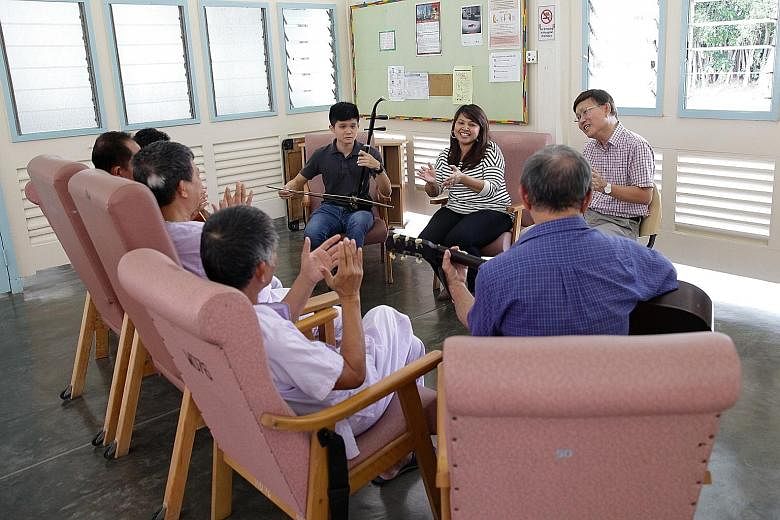Hospitals such as the National University Hospital (NUH) are stepping up efforts to combat the scourge of latent tuberculosis (TB), in which people, usually aged 50 and over, unknowingly are carriers of an inactive form of the disease.
Two in three of new cases reported among Singapore residents last year were aged 50 and over, the Health Ministry said yesterday in an update on the TB situation here.
The number of new cases - 1,536 - was slightly lower than the 1,617 reported in the previous year. Most of the new cases involved males and included some children.
TB is is an airborne disease that usually affects the lungs, and can also affect other body parts like the brain, lymph nodes, kidneys and bones. It can be cured with medication taken over a period of six to nine months.
While most people exposed to TB bacteria do not become infected, those who do will develop latent TB which is not infectious. But as they grow older, or when their immunity weakens, latent TB can turn into infectious active TB. The symptoms include a persistent cough, fever and chest pain.
Up to 30 per cent of older residents in Singapore have latent TB because the disease was prevalent in Singapore till the 1970s, said MOH.
Instances of TB infection continue to be in the public eye today. In 2016, it was reported that several people living in a block of flats in Ang Mo Kio had been diagnosed with a resistant form of the disease, prompting MOH to offer free screening to residents of the block.
NUH has in recent years moved to have patients with weakened immune systems undergo routine latent TB screening. They included those undergoing bone marrow and liver transplants, as well as those about to take drugs for different types of arthritis such as rheumatoid arthritis.
The screening, which began more than five years ago, was extended to patients with the human immunodeficiency virus (HIV) last August after a hospital study found that TB could have been prevented in up to 40 per cent of cases by sending these people for screening.
"Preventive therapy given for latent TB would significantly decrease the progression to active TB, which can be fatal as it infects the brain, causing strokes and significant morbidity," said Dr Catherine Ong, a consultant at NUH's division of infectious diseases. "In addition, only one medicine, compared to four, is taken without the need for directly observed therapy (for latent TB). This translates to lower costs, and less chance of drug adverse events," she added.
About a fifth of the 300 HIV patients at the hospital had been screened when previously none had, said Dr Ong. Singaporean patients pay $100 for blood tests to check for latent TB. The cost is subsidised as the tests normally cost $255.
HIV patient Mark, 37, (not his real name) feels "really thankful" that his latent TB was flagged and treated after a routine screening in December. He is undergoing a nine-month treatment programme.
Those warded at Tan Tock Seng Hospital's TB Control Unit are usually of lower socio-economic status and have little family and social support during their six-to nine-month stay, said Dr Cynthia Chee, director of the unit. "Having people come to visit them will go a long way in their treatment journey," she added, referring to volunteers who have been bringing cheer to TB patients for the past two years.


